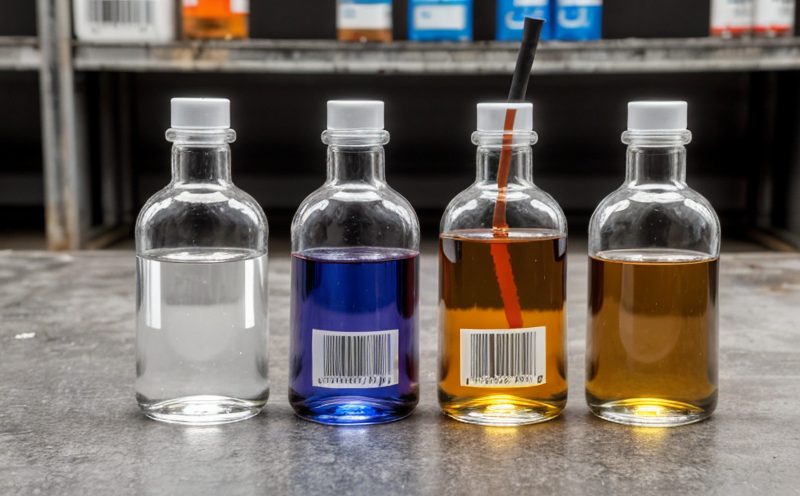GB T 3512 Rubber Thermal Aging Stability Testing
The GB/T 3512 Rubber Thermal Aging Stability Test is a critical procedure used to evaluate the thermal aging resistance of rubber materials. This test simulates the effects of prolonged heat exposure, which can lead to deterioration in physical properties such as tensile strength, elongation at break, and hardness. The objective is to determine how well the material withstands these conditions without losing its integrity.
The standard specifies a series of controlled temperature cycles that simulate real-world environmental stresses. This helps manufacturers ensure their products meet safety standards and perform reliably under expected operating conditions. By conducting this test, companies can improve product quality by identifying potential weaknesses early in the development process.
Thermal aging is a common concern across various industries including automotive, aerospace, electrical insulation, and construction materials where rubber components are used. For instance, tires exposed to high temperatures during prolonged use may experience reduced lifespan due to thermal degradation. Similarly, rubber seals in power generation equipment could fail prematurely if they do not meet the required stability criteria.
In addition to identifying material weaknesses, this test also aids in optimizing product design and selecting appropriate materials for specific applications. Engineers can use the results from these tests to refine formulations or choose alternative substrates that better suit the desired performance characteristics.
Compliance with GB/T 3512 ensures adherence to national regulations while enhancing international recognition through harmonization efforts aligned with ISO/IEC standards. This is particularly important for companies operating globally since they must satisfy varying local requirements as part of their quality assurance programs.
The testing procedure typically involves placing rubber samples into an oven at specified temperatures and holding times, followed by cooling down to room temperature. Specimens are then visually inspected or subjected to mechanical tests like tensile strength measurements before and after aging. Visual inspections look for changes in coloration, cracking patterns, or loss of elasticity.
- Visual Inspection: Checking for discoloration, cracks, and other signs of degradation.
- Tensile Strength Testing: Measuring the force required to break a sample.
- Elongation at Break Testing: Determining how much stretch is possible before breaking occurs.
Standardization plays a crucial role in ensuring consistent and accurate results across different laboratories. Compliance with GB/T 3512 guarantees that all participating facilities adhere to uniform procedures, thus producing reliable data that can be compared meaningfully between sites.
This test is essential for maintaining product quality standards but it also contributes positively towards sustainability goals by promoting the use of durable materials. Through rigorous evaluation, manufacturers can reduce waste associated with premature failures and extend the lifecycle of products made from these materials.
Eurolab Advantages
At Eurolab, we pride ourselves on delivering unparalleled service excellence in chemical testing. Our expertise spans across multiple sectors including automotive, electronics, pharmaceuticals, and more. For rubber thermal aging stability testing specifically, our state-of-the-art facilities are equipped with the latest instrumentation capable of meeting even the most stringent requirements set forth by standards like GB/T 3512.
Our skilled team comprises highly trained professionals who possess extensive experience in various aspects of chemical analysis and testing. They stay updated on industry trends and advancements, ensuring that our services remain at the forefront of innovation. Whether you need routine assessments or one-off evaluations, we offer flexible solutions tailored to meet your unique needs.
We understand how important timely delivery is for businesses operating in today’s fast-paced environment. That's why our turnaround times are typically shorter than those offered by competitors, allowing clients to receive their reports promptly so they can proceed confidently with subsequent steps in their projects.
Our commitment to quality doesn't stop at just providing accurate test results; it extends throughout the entire process from initial consultation through final report generation. By involving ourselves actively during each stage, we ensure that no stone is left unturned when it comes to achieving optimal outcomes for our customers.
Quality and Reliability Assurance
Ensuring quality and reliability in chemical testing requires a comprehensive approach encompassing not only the technical aspects but also robust management systems. At Eurolab, we adhere to international best practices outlined by organizations such as ISO/IEC 17025:2017 which sets stringent criteria for competence in scientific and technical fields.
Our quality assurance framework includes regular internal audits aimed at identifying areas for improvement and maintaining compliance with relevant standards. External accreditation from bodies like UKAS further reinforces our commitment to excellence, giving clients peace of mind knowing their samples are being handled by a trusted partner.
In addition to these formal measures, Eurolab invests heavily in continuous professional development programs for its staff members. Regular training sessions keep everyone up-to-date on the latest methodologies and techniques ensuring that our technical capabilities evolve alongside technological advancements.
Reliability is achieved through strict adherence to established protocols coupled with stringent quality control measures throughout every stage of the testing process. From sample preparation right down to final analysis, meticulous attention to detail guarantees consistent high-quality results.
Environmental and Sustainability Contributions
- Eco-Friendly Testing Procedures: Utilizing environmentally friendly solvents and reagents wherever possible reduces waste generation during testing activities.
- Energy Efficiency Initiatives: Implementing energy-efficient practices in laboratory operations minimizes carbon footprint associated with our daily operations.
- Material Recovery Programs: By recycling used test materials where appropriate, we contribute towards reducing landfill usage and promoting circular economy principles.





